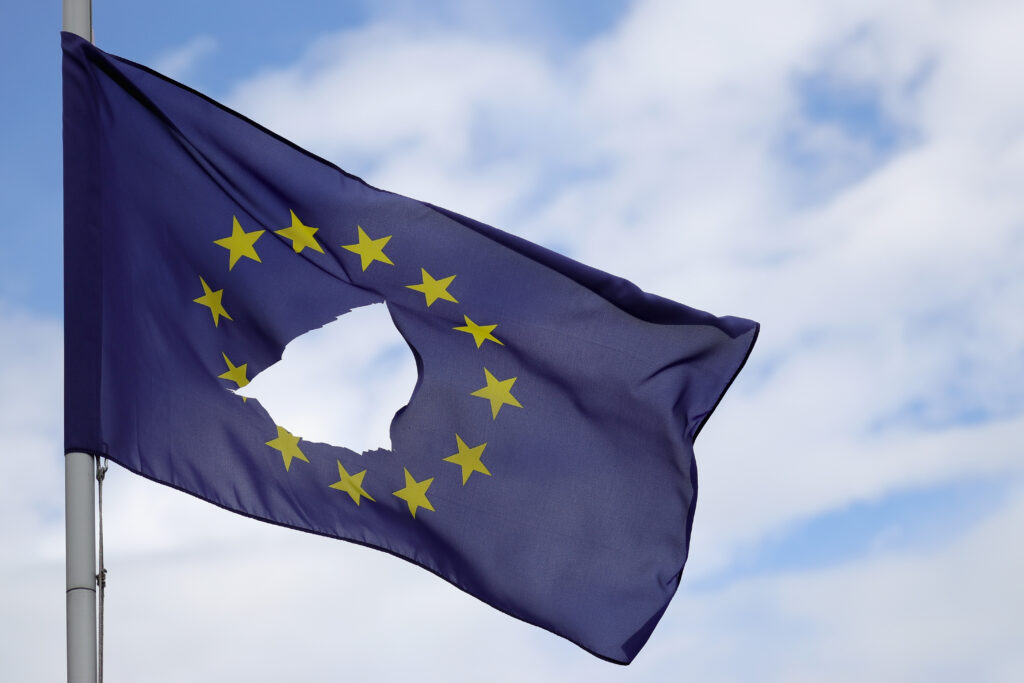Why Britain’s exit from the EU is bad news for the Left in Europe
From the destructive policy of austerity that was put in place in southern Europe, the war in Ukraine, which was directly caused by the EU Association Agreement, the failure to address migration properly, the thousands of deaths in the Mediterranean resulting from the EU’s policy of isolation, and the rejection of European models of the welfare state to growing levels of social inequality in Europe, the list of failures caused by the European Union (EU) has never been longer than in summer 2016.
After 1945, the European project was to secure peace; after 1989 it was supposed to finally bring about a united Europe. Yet the purely neoliberal character of EU policy and its focus on maximizing short-term profits has combined with the simultaneous failure of the European project to do more harm than good to the notion of Europe. Nothing else demonstrates this more clearly that the outcome of the UK referendum.
Nevertheless, the UK’s vote to leave the EU can hardly be described as a stroke for freedom from this situation. British voters did not support the country’s exit from the EU because they hoped for a more social Europe, or a Europe without wars. They did so because they wanted to isolate themselves more strongly from increased levels of migration—and the British government repeatedly stated that doing so would be impossible from within the EU. Moreover, they did so because they wanted to return to their British nation-state; to the Britain they remember during the post-Commonwealth era when the country was relatively rich and still held strong influence throughout the world.
Margret Thatcher could arguably be viewed as embodying this era like no other person; she continually negotiated a special status for Britain within the EU—and she did so quite successfully, as can be seen from British membership fees. But this was not enough for the majority of the British people. They treated the referendum as a vote on the return to the nation-state; a nation-state, which, in its current and previous forms, has always participated in bloody conflicts, from Northern Ireland and Iraq to the former British colonies, such as those in Africa. This fixation clearly demonstrates the influence of nationalism, and how it dominated the run-up to the referendum: the Leave campaign was and is a racist, and, in a sense, selfish campaign, that lacked solidarity. And it clearly turned its back on a Europe of solidarity, peace and open borders.

However, the regions in the UK that tend to strive for independence—Scotland and Northern Ireland—voted by a large majority to remain in the EU. They clearly fear a return to the politics of the British Empire.
The Brexit vote will exacerbate the centrifugal forces in Europe and intensify right-wing hegemony. On Twitter people are stating, «Look who’s clapping», while pointing to Marine Le Pen, Donald Trump and Geert Wilders. Clearly then, there is a strong possibility that nationalism and xenophobia will become stronger in Europe, and the outcome of the UK’s referendum is certainly fueling these tendencies.
France is poised to pass the next judgement on Europe. The fact that the country is faced by mass left-wing strikes on the one hand and the National Front making substantial electoral gains on the other clearly shows that France is no longer firmly anchored within Merkel and Sarkozy’s EU. This, however, has been the case for some time. Finally, mass protests are also taking place against social inequality and austerity on the European periphery—and the Balkans in particular—even if they are going almost unnoticed in other countries.
It will only be possible to save the vision of a united Europe once the Left becomes stronger within these EU-critical movements and finally provides specific left-wing answers to social problems. Could the pro-European results in Scotland be taken as indicating that confidence in multilateral organizations could be boosted if Europe were more strongly linked to local democracy? Whatever the case, before this can happen, Europe will have to change.
A new European project such as this will need to focus primarily on democracy, even if the EU in its current form seems almost impossible to reform.
We could still do all of this without Britain. But it would have been far better to do it with a wide bridge stretching across the English Channel that provided a safe path for people in need of refuge.



